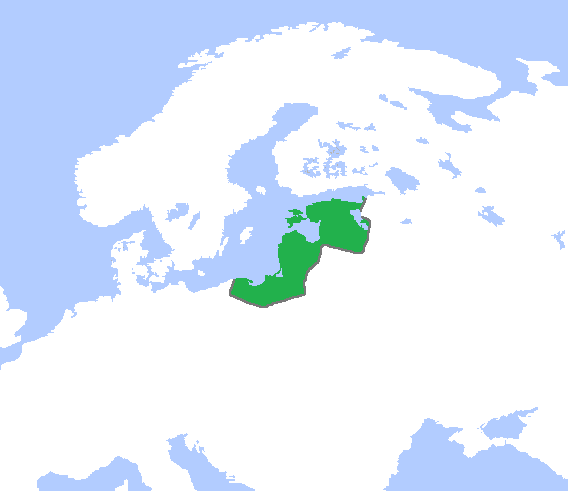
Yes, but it can also be said that over time the Teutonic Order began to exist as an “independent body” and the HRE’s control over them began to become “nominal”, as well as the Italian city states, which also were part of the HRE in name, but in practice they managed themselves.
Thus being the Teutonic Order, which began as an order of soldier-monks who fought in the crusades, and helped merchants and pilgrims to cross to holy places. they acquired so much power by paying for bodyguard services, that they eventually “bought up an entire country”, literally Estonia. This was in 1347 under the Treaty of Marienburg, for 19,000 silver marks. From there, in what we could call the “Teutonic Kingdom”, they began an invasion of the Prussian peoples, first under the excuse that they were going to depose the pagan leaders and evangelize the population. Perhaps they did evangelize at first, but a few decades later things turned ugly.
As the AoE2 campaign shows, even after a large part of the population had been evangelized, the Teutons were no longer a charitable order, they were simple mercenaries who sought a life based on looting, attacking Christian towns under the excuse that “Their conversion was not sincere” and then they went back to their strengths. The kingdoms of Poland and Lithuania, already Christian, got tired of them and destroyed them, taking what was left of their territory.
By the time of the Renaissance, although they were never completely exterminated, the scoundrels had so little love for Christianity that when the religious wars between Protestant and Catholic sides began, they went over to the Protestant side to "stop giving tithes to the church."
They’re a disgrace as a religious order, but they’re still part of history, and would make good enemies in some Age IV campaign if they take out the Lithuanians or Poles, if not at least as a Campaign Civ with unique cavalry and heavy infantry units. ultra strong.
They are part of the history of medieval Estonia and Latvia, so in theory they would also have their audience. Of course, perhaps it would be better for them to leave, as they said before, together with their main rivals, the Poles and Lithuanians.